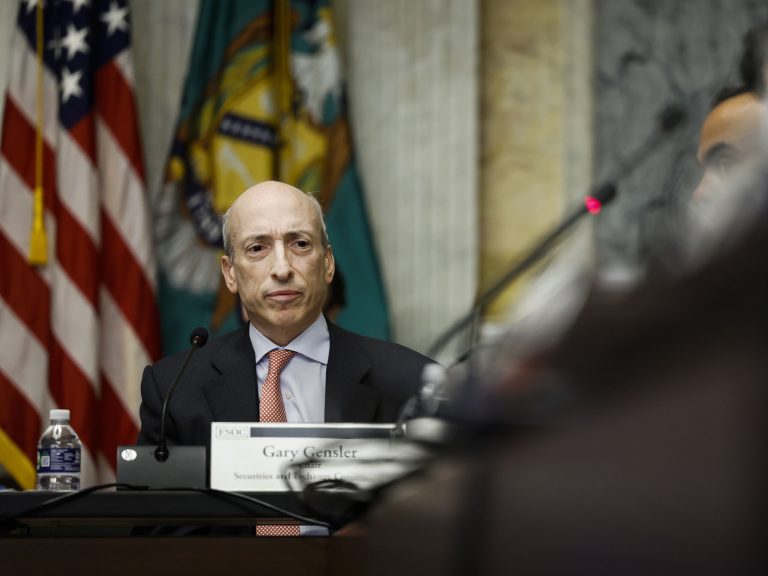
The US Securities and Exchange Commission (SEC)’s Chair Gary Gensler has faced accusations of misleading Congress regarding the regulatory status of Ethereum, a leading cryptocurrency. This has sparked a heated debate within the financial and legislative communities, raising questions about the transparency and consistency of the SEC’s approach to cryptocurrency regulation.
SEC Chair Gary Gensler was accused of misleading Congress by Rep. Patrick McHenry, the chairman of the House Financial Services Committee, who said Gensler’s agency already knew it considered Ethereum’s Ether a security before he attended a hearing and declined to answer that question. “Chair Gensler refused to answer questions regarding the SEC’s classification of Ether,” McHenry said in a statement posted on X on Tuesday. “New court filings show this was an intentional attempt to misrepresent the commission’s position.”
The classification of ETH is a major question hanging over the U.S. oversight of digital assets. If ETH is a security that should be registered and regulated by the SEC, then many other tokens may also fit that definition.
Register for Tekedia Mini-MBA edition 19 (Feb 9 – May 2, 2026): big discounts for early bird.
Tekedia AI in Business Masterclass opens registrations.
Join Tekedia Capital Syndicate and co-invest in great global startups.
Register for Tekedia AI Lab: From Technical Design to Deployment (next edition begins Jan 24 2026).
The controversy centers around the classification of Ethereum’s native token, ETH, as a security. The implications of such a classification are significant, as it would subject Ethereum and similar cryptocurrencies to stringent SEC regulations. The debate intensified following a statement by Rep. Patrick McHenry, chairman of the House Financial Services Committee, who claimed that the SEC was investigating Ethereum as a security even before Gensler’s testimony to Congress.
The SEC’s investigations manual clarifies that an investigation is conducted to determine the possibility of a violation of federal securities laws, not as a definitive finding. However, the recent allegations suggest that the SEC may have already formed a policy position on Ethereum’s classification, which was not disclosed during Gensler’s testimony.
This situation has led to a broader discussion on the need for clear and consistent regulatory frameworks for digital assets. The current state of affairs underscores the challenges regulators face in keeping pace with the rapidly evolving cryptocurrency market. It also highlights the importance of transparent communication between regulatory bodies and legislative entities to foster trust and stability in the financial ecosystem.
The implications of such a classification are significant, as it would subject Ethereum and similar cryptocurrencies to stringent SEC regulations. The debate intensified following a statement by Rep. Patrick McHenry, chairman of the House Financial Services Committee, who claimed that the SEC was investigating Ethereum as a security even before Gensler’s testimony to Congress.
The SEC’s investigations manual clarifies that an investigation is conducted to determine the possibility of a violation of federal securities laws, not as a definitive finding. However, the recent allegations suggest that the SEC may have already formed a policy position on Ethereum’s classification, which was not disclosed during Gensler’s testimony.
As the debate continues, the cryptocurrency community watches closely, understanding that the outcome of this controversy could have far-reaching consequences for the industry. The call for a comprehensive regulatory framework that addresses the unique characteristics of digital assets has never been more pressing.
The SEC has yet to respond to the accusations, and the outcome of this dispute remains to be seen. What is clear, however, is that the resolution of this matter will play a pivotal role in shaping the future of cryptocurrency regulation.



